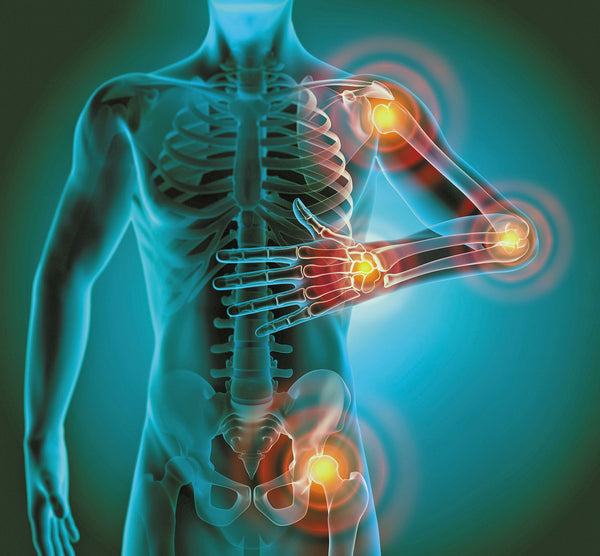Why Don’t Current Neuropathy Medications and Treatments Work?

Dealing with nerve damage on a daily basis is incredibly unpleasant for many individuals. However, for some people, the current neuropathy treatments on offer simply don’t offer them the relief they need. With numbness and tingling in your limbs all day long, it can feel impossible to go about your everyday tasks, even following treatment or surgery. Today we’re going to discover why many of the current neuropathy treatment options are ineffective and the alternative treatments you may want to consider if you are experiencing this condition.
Surgery for Neuropathy
In more severe cases of nerve damage, treatment for neuropathy may involve undergoing surgery. The aim of this surgery is to reduce the pain and tingling you might be feeling; however, for many patients, this decompression surgery doesn’t help to stop the pain as much as they’d like. Surgery is something many of us want to avoid at all costs, especially if it’s going to be ineffective. Research suggests that less than half of the patients who undergo nerve repair surgery regain their full motor or sensory function. This is a sad statistic considering how many patients we see are recommended this as the top form of treatment for nerve damage.
Neuropathy Medication
The medication on offer for each case will be dependent on the symptoms a patient is experiencing and the root cause of their neuropathy. It’s important to keep in mind that not all underlying causes can be treated, which is one of the most common mistakes we notice when prescribing medication. Some patients are offered medication but are also encouraged to make lifestyle changes, such as reducing alcohol consumption or trying to quit smoking. Neuropathic pain agents are a type of prescribed medication for neuropathy, which can help to reduce the symptoms a patient is feeling. Keep in mind that standard painkillers are unlikely to work for neuropathy, as they simply aren’t strong enough or don’t contain the right ingredients to combat the pain you are experiencing.
Two of the most common medications for nerve damage on the market are Cymbalta and Lyrica. While these are used by thousands of people on a daily basis, sadly, they don’t work to treat any of the causes of your nerve damage. Instead, they simply act as a band-aid, masking the pain without treating the symptoms. On top of that, these medications often come with a wide range of side effects, which make going about your daily life even more of a challenge. Common side effects and complaints we hear after taking neuropathy medication include sleeping issues, dizziness, blurred vision, and nausea. These side effects often act as a distraction for the further pain the patient may be in, so it doesn’t help to treat the issues at all.
Inflammation and Neuropathy
When looking at alternatives to the current treatments on offer for nerve damage, one thing to keep in mind is the close link between inflammation and neuropathy. Some types of nerve damage are caused directly by the inflammation of nerves and the nerve roots. This swelling then destroys the protective covering around the nerves, which is called myelin. In the long run, this will damage the nerve fibers and slow down the ability to send signals to the body. As a result, patients feel pain, numbness, or weakness. If medication and surgery are not suitable options for the symptoms you are experiencing, or they have failed you in the past, the good news is that there are other ways to treat nerve damage.
Treatments for Neuropathy
The treatment that each patient needs for neuropathy will be entirely dependent on their unique symptoms and needs. While not every underlying cause can be treated, there are many ways to control the symptoms of neuropathy. A good example of this is with patients with diabetes. When they gain control of their blood sugar level, they often find the nerve pain and numbness is reduced. The same goes for smokers or anyone with a reliance on alcohol. By cutting these triggering substances out of your life, you may find that this approach is far more effective than undergoing surgery or taking daily medication. Alcohol is incredibly toxic to the nerves and will only worsen your pain. While there are no specific recommendations for the number of drinks you can consume each week, the more you are in control of this habit, the less likely you’ll have further pain in the future.
There is a tendency within some medical practices to simply try and offer medication to reduce symptoms. However, by getting to the underlying cause of the condition, you are far more likely to see long-term changes in someone’s life. Adopting healthy routines, such as soaking your feet or taking regular baths, provide you with the relief you need when experiencing nerve pain and could be a better long-term solution.
Other symptoms which coincide alongside neuropathy may need to be treated individually to offer you a better overall quality of life. Muscle weakness may require physiotherapy or walking aids, which can help to support you with daily activities. It’s all about finding a solution that works for your symptoms. No two patients will require the exact same dosage of medication or the same treatment. Many patients are opting to look for natural treatments when it comes to treating neuropathy and other conditions they are suffering from. Some people swear by walking more, which is a natural painkiller that promotes blood flow to your feet and legs.
As you can see, there are many different solutions to nerve pain, which don’t force you to rely on medication or surgery in the future. Each situation is different, and no two patients are likely to be experiencing the exact same symptoms or issues. By getting to the underlying cause of your nerve pain, you’ll be more likely to be able to remove any triggers which are causing your symptoms to worsen and start working to live a healthier and pain-free life in the future.
Dr. Bao Thai




